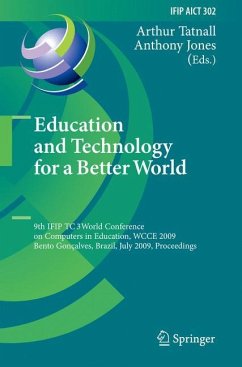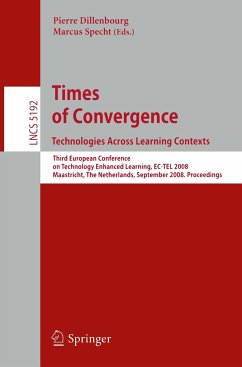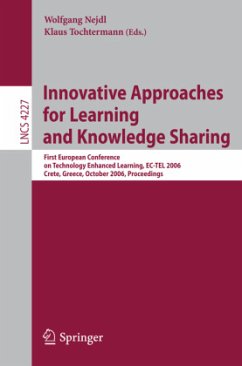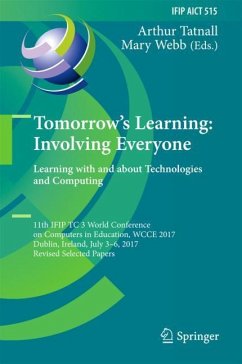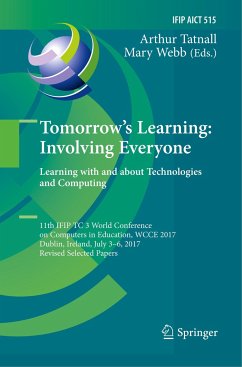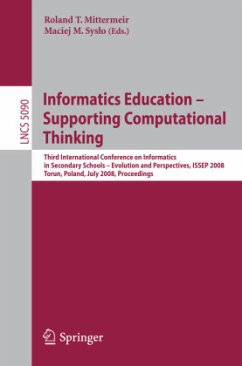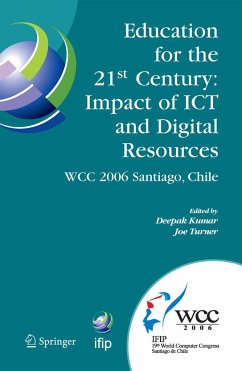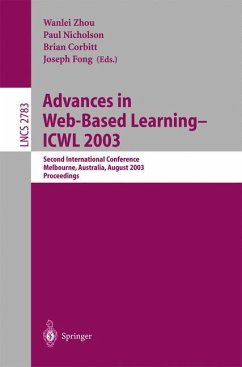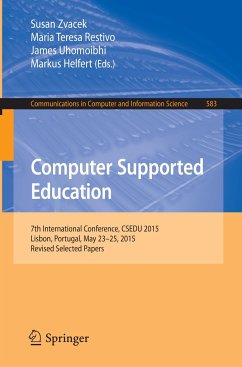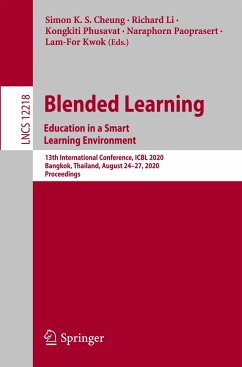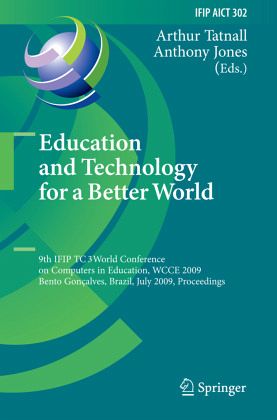
Education and Technology for a Better World
9th IFIP TC 3 World Conference on Computers in Education, WCCE 2009, Bento Gonçalves, Brazil, July 27-31, 2009, Proceedings
Herausgegeben: Tatnall, Arthur; Jones, Anthony
Versandkostenfrei!
Versandfertig in 1-2 Wochen
77,99 €
inkl. MwSt.

PAYBACK Punkte
39 °P sammeln!
Education and Technology for a Better World was the main theme for WCCE 2009. The conference highlights and explores different perspectives of this theme, covering all levels of formal education as well as informal learning and societal aspects of education. The conference was open to everyone involved in education and training. Additionally players from technological, societal, business and political fields outside education were invited to make relevant contributions within the theme: Education and Technology for a Better World. For several years the WCCE (World Conference on Computers in Ed...
Education and Technology for a Better World was the main theme for WCCE 2009. The conference highlights and explores different perspectives of this theme, covering all levels of formal education as well as informal learning and societal aspects of education. The conference was open to everyone involved in education and training. Additionally players from technological, societal, business and political fields outside education were invited to make relevant contributions within the theme: Education and Technology for a Better World. For several years the WCCE (World Conference on Computers in Education) has brought benefits to the fields of computer science and computers and education as well as to their communities. The contributions at WCCE include research projects and good practice presented in different formats from full papers to posters, demonstrations, panels, workshops and symposiums. The focus is not only on presentations of accepted contributions but also on discussions and input from all participants. The main goal of these conferences is to provide a forum for the discussion of ideas in all areas of computer science and human learning. They create a unique environment in which researchers and practitioners in the fields of computer science and human learning can interact, exchanging theories, experiments, techniques, applications and evaluations of initiatives supporting new developments that are potentially relevant for the development of these fields. They intend to serve as reference guidelines for the research community.





